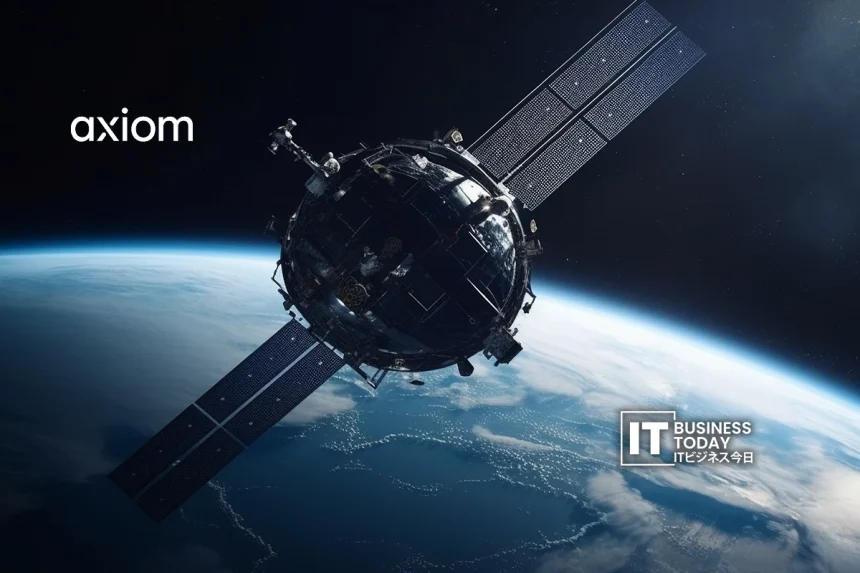In a major development concerning the commercial space and aerospace industries, Axiom Space, headquartered in the US, has signed an agreement with Japanese startup collaborators to create a pathway for cargo transportation from space back to Earth. Although the detailed full terms of the agreement remain undisclosed, this move was alluded to in a posting by Nikkei Asia that says: “Axiom and Japan startup team to deliver cargo from space to Earth.”
What the News Means
The essence of this deal is that Axiom, already a player in commercial low-Earth orbit infrastructure, is now teaming up with Japanese industry to access the “return-to-earth” logistics chain: delivering from orbit back to the terrestrial surface. Where delivery to space is by now a familiar theme, the reverse path-routine, reliable, commercial return of assets, materials or goods from space-is still nascent. This collaboration marks Japan’s intent to become a serious player in that return leg.
From a technology blogger’s perspective, this is the opening of new frontiers in logistics Earth-space-Earth supply chain and a platform for new business models.
Also Read: Japan Bolsters Space-Tech Aspirations with Latest Cargo Mission
Implications for Japan’s Tech Industry
Here are some key impacts for Japan’s tech ecosystem:
Industrial and manufacturing opportunity
Japanese firms are well-positioned in precision manufacturing, materials, aerospace subsystems, and robotics. A collaboration of this kind means Japanese hardware providers-from propulsion to re-entry systems, from thermal shielding to remote sensing and control-may gain contract opportunities, stimulating the domestic supply chain.
Ecosystem for Commercial Space Services
Historically, Japan has focused on government-driven space activity via JAXA. But this agreement shows a direction toward commercialization: private-sector startups, service models, returning cargo from LEO, and new logistics paradigms. The growth of a private space ecosystem in Japan is likely to accelerate.
New business models: “space logistics”
The “from-space to Earth” cargo model opens new services: retrieval of experiment results, manufacturing in space and return to Earth, high-value or time-sensitive payloads launched to orbit then returned. Japanese companies can participate in these new models, whether in materials processing in microgravity, pharmaceutical or novel manufacturing, or satellite servicing with return legs.
Global competitiveness and export opportunities
For Japan’s technology exporters, this sets a branding and reference opportunity: if Japanese components or systems are used in a high-profile international space-cargo return mission, that becomes a global showcase. It helps Japanese tech firms position themselves for international contracts, joint ventures, and cross-border collaborations.
Effects on Businesses Operating in This Industry
Enterprises involved in aerospace, supply-chain logistics, materials science, robotics, and services related to space technology should take note that
Supply‐chain readiness: Firms should examine how their component technologies – thermal control, avionics, autonomous re‐entry, data downlink, recovery systems ‐ can feed into this new value chain. Early mover advantage is real.
Service orientation: Business models will move from the mere sale of hardware to “space cargo as a service”, “re-entry recovery as a service », or “microgravity manufacturing + Earth return”. Companies that implement service model orientations rather than product-only models will capture more of the value.
Regulation and certification: returning goods from orbit is less common than launching only. Firms will have to consider regulatory regimes, safety & environmental review, re-entry zoning, licensing recovery, insurance, and liability. Japanese companies are likely to partner with experienced international players- like Axiom-to navigate this.
Data & analytics: the value chain will produce data – payload condition, re‐entry dynamics, recovery operations. Firms can construct analytics, predictive models, supply-chain dashboards and use that as a differentiator.
Market timing and scale: While this news indicates growth, scale will still take some time. Businesses should plan for medium-term ramp-up rather than expecting immediate large-volume returns. Investments now may pay dividends in future years as the ecosystem matures.
Why This Matters in the Broader Tech Context
This is timely development for the broader commercial space sector, which is moving from “launch and orbit” to “services in orbit + return to Earth”. With more sensors, experiments, manufacturing, and other orbital assets under development, the capability to bring value back — not simply launch — will become differentiator. Japan, by aligning itself with Axiom, is stepping into that higher-value portion rather than being only a launch or component nation. The “space logistics” concept unlocks new verticals for the technology industry globally: onboard manufacturing, advanced materials in microgravity, remote servicing, high‐speed data return, and even time-sensitive payload retrieval. Tech firms positioned in robotics, automation, materials, AI, and data will find adjacent opportunities in space. Japanese tech firms therefore have a “premium territory” to occupy if they act now.
Final Take-Away
This deal is a strategic inflection for Japanese space-industry actors: Japan isn’t just participating in launches, but anchoring itself in the emerging orbit-to-Earth logistics chain. For the technology industry, the implications span hardware, services, supply chain, new business models and international positioning. For businesses operating in or adjacent to aerospace, materials, robotics or remote services, this is an early signal to orient strategy around the “return from space” economy — not just the “go to space” economy.








